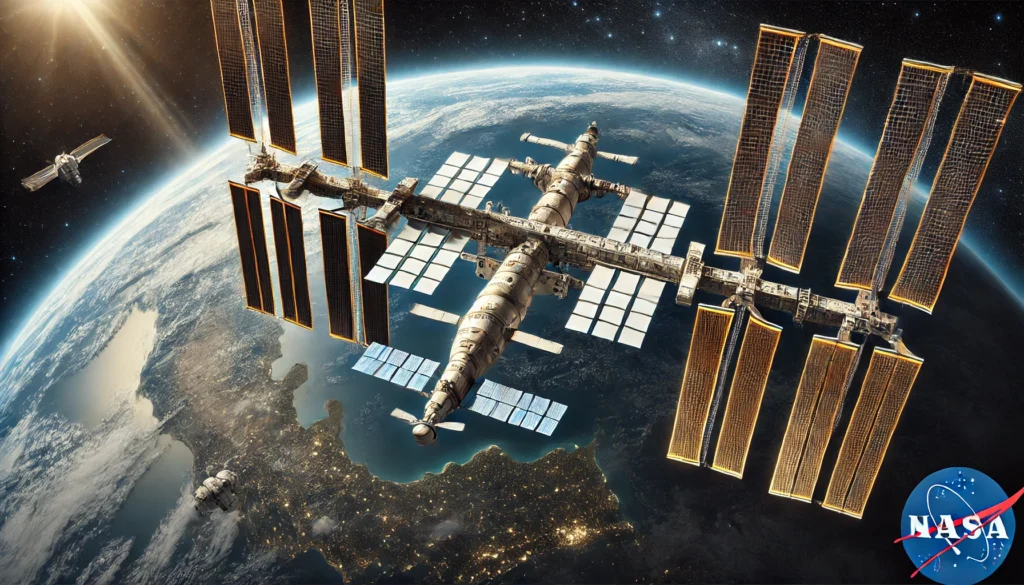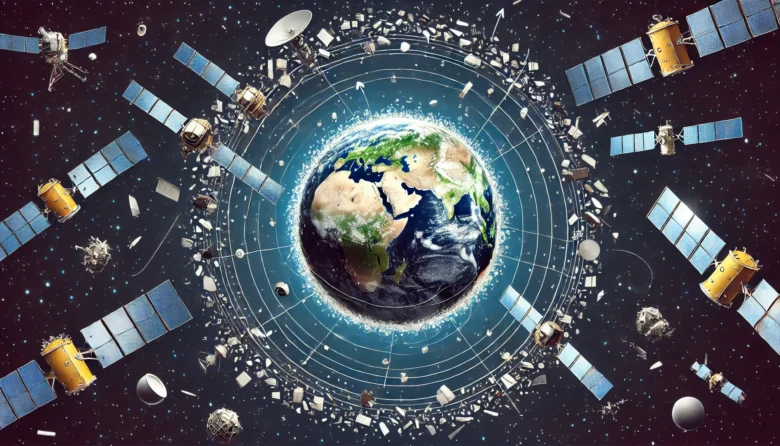As space exploration continues to progress at an astonishing pace, we are constantly amazed by the technological advancements and scientific breakthroughs that expand our knowledge of the universe. But with this progress comes a pressing need: global cooperation to regulate space for both technology and science. As more countries and private companies launch satellites, develop spacecraft, and push for space tourism, the question arises—who is responsible for keeping space safe and organized?
This blog will explore why it’s vital for the world to unite in regulating space activities, ensuring that space remains a shared resource for technological advancement and scientific discovery and not a playground for unchecked exploitation.
Why Regulating Space Matters
Let’s start by understanding the challenges we face. Space may seem infinite, but the areas where human activity takes place—such as the low Earth orbit (LEO), geostationary orbits, and beyond—are becoming increasingly congested. Right now, thousands of active satellites circle the Earth alongside an enormous amount of space debris—fragments of old rockets, defunct satellites, and other discarded materials.
Without clear regulations, the risk of collisions between spacecraft and space junk is growing, potentially leading to a Kessler Syndrome scenario. In this situation, space debris becomes so widespread that collisions trigger a chain reaction, making certain orbits unusable for decades. Such an event would cripple global communications, scientific missions, and even space travel itself.

The Role of International Treaties
Fortunately, the world has recognized the need to manage space responsibly. One of the key treaties governing space activities is the Outer Space Treaty of 1967, which was signed by over 100 countries, including major space-faring nations like the United States, Russia, and China. This treaty outlines important principles, such as:
- Space shall be used for peaceful purposes.
- No country can claim sovereignty over outer space or celestial bodies.
- Countries are responsible for their national space activities, whether conducted by governmental or non-governmental entities.
The treaty sets a foundation, but as technology has evolved, so have the challenges. Commercial space enterprises like SpaceX (an American aerospace manufacturer and space transportation company) and Blue Origin (a private spaceflight services company) have joined the race, making it more urgent to update and enforce space regulations. These companies launch satellites, plan missions to the Moon and Mars, and are even working on space tourism ventures.
However, not all countries or companies adhere to the same environmental standards or safety protocols, creating potential conflicts. This is why international cooperation is more important than ever to regulate the balance between space exploration, technological progress, and the sustainability of space as a resource.
The Commercial Space Race and the Need for Regulation
With companies like SpaceX launching mega-constellations of satellites into orbit and other private enterprises seeking to mine asteroids for precious metals, space has become a frontier for not just exploration but also business. While the economic opportunities are immense, the lack of comprehensive international regulation could lead to space exploitation.
For instance, SpaceX’s Starlink project, which aims to provide global internet coverage through a vast network of satellites, has faced criticism for contributing to the clutter in low Earth orbit. Astronomers have also raised concerns that these satellites are interfering with space-based research by reflecting sunlight and disrupting telescopic observations.
Space Debris: A Growing Threat
One of the biggest issues facing space is space debris. Imagine being in a crowded parking lot, except every object is moving at 28,000 kilometres per hour. Even tiny fragments of debris can cause massive damage to satellites, spacecraft, or even the International Space Station (ISS).
Take the 2009 collision between an inactive Russian satellite and a U.S. commercial satellite as an example. This incident created thousands of pieces of debris, some of which are still orbiting Earth today. The problem is only getting worse as more objects are sent into space without a clear plan for removing or managing debris.
While some countries are taking steps to limit debris generation, like Japan’s initiative to develop a space-cleaning satellite, this is not a globally coordinated effort. What happens if a country fails to clean up its space debris? Who holds them accountable? These questions highlight the need for a global governing body dedicated to space regulation.
International Space Governance: The Next Frontier
Although organizations like the United Nations Office for Outer Space Affairs (UNOOSA) have been instrumental in fostering international cooperation, there remains a significant need to develop a comprehensive framework that effectively addresses both the technological and scientific dimensions of space exploration.
One of the key challenges is the unequal distribution of resources and capabilities. Countries with advanced space programs, like the U.S., China, and Russia, dominate space activities, while many smaller nations have little influence in shaping space policy. A truly effective international regulatory system would need to ensure that all countries, regardless of their space-faring abilities, have a voice in decision-making processes.
Additionally, as space exploration extends beyond Earth’s orbit—with plans to explore the Moon, Mars and even mine asteroids—it’s essential to establish guidelines for resource extraction and utilization. Without regulation, we could see a “space rush,” where countries and companies race to claim the resources of celestial bodies, potentially leading to conflicts or environmental damage beyond our planet.
Case Study: The Artemis Accords
A recent example of international cooperation is the Artemis Accords, spearheaded by NASA (National Aeronautics and Space Administration) and its partners. The Accords outline principles for responsible exploration of the Moon, Mars, and beyond, including transparency, peaceful exploration, and the mitigation of space debris.
Countries signing the Accords agree to share scientific data and collaborate on future missions. This cooperative approach is crucial as space missions become more complex and involve multiple nations. For instance, the planned Artemis missions aim to return humans to the Moon, and the International Lunar Gateway—a space station orbiting the Moon—will require contributions from various space agencies.
By promoting global cooperation, the Artemis Accords set a precedent for how countries can work together for both technological advancement and scientific research in space. However, it’s essential that such agreements expand to include more countries and private entities to ensure that space remains accessible and safe for all.
Conclusion: A Call for Unified Global Action
As the space age accelerates, the need for global cooperation to regulate space is more urgent than ever. Space is not just a playground for the wealthy or a battleground for competing superpowers; it’s a shared resource that must be managed responsibly for the benefit of all humanity. By working together, we can ensure that space remains open for scientific exploration, technological progress, and the continued expansion of human knowledge.
Call to action: It’s time for the world to unite and build a comprehensive framework for space governance. Governments, private companies, and international organizations must collaborate to create a regulatory system that safeguards space for future generations. Let’s ensure that space remains a frontier for innovation and discovery, not conflict or exploitation.
Author’s Note
As we reach further into the cosmos, it’s clear that space belongs to all of us. The actions we take today to regulate space will determine the future of exploration, science, and even our survival. I hope this blog inspires you to think more deeply about the importance of cooperation in the final frontier.
G.C., Ecosociosphere contributor.
References and Further Reading
- NASA: Artemis Accords
- Exploring the Cosmos: How AI is Revolutionizing the Space Industry – REXYS Inc.. https://rexys.io/exploring-the-cosmos-how-ai-is-revolutionizing-the-space-industry/
- With the launch of the new space program, the European Union seeks stars – EURACTIV.com – Story Telling Co. https://storytellingco.com/with-the-launch-of-the-new-space-program-the-european-union-seeks-stars-euractiv-com/





Comments
Pretty! This has been a really wonderful post. Many thanks for providing these details.
I just like the helpful information you provide in your articles
For the reason that the admin of this site is working, no uncertainty very quickly it will be renowned, due to its quality contents.